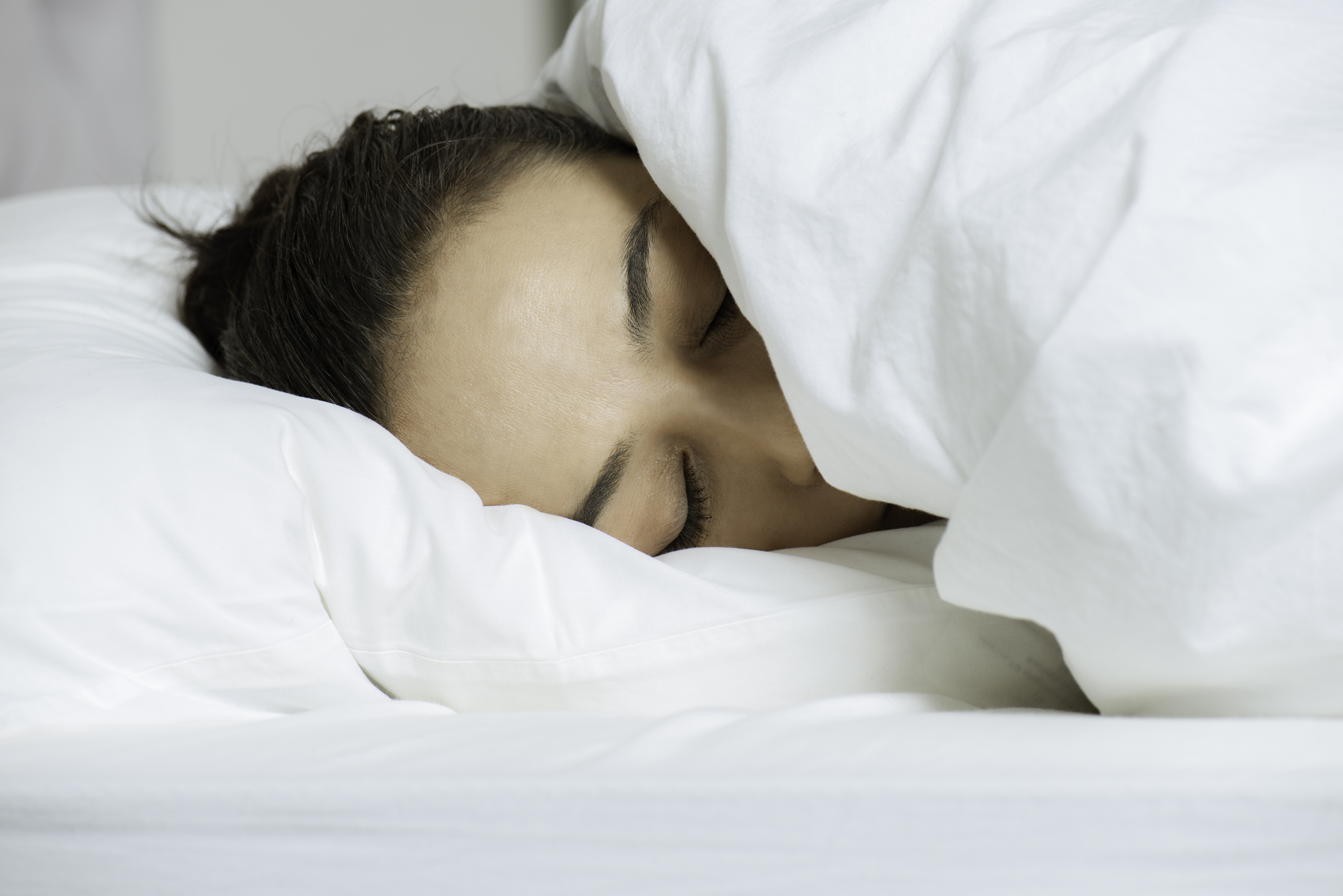There’s nothing increasingly important than sleep for a healthy mind and soul — but sometimes, getting unbearable can prove elusive. Work, friends, family, stress, meal prep, workouts, and late-night Netflix binges can all get in the way of a solid night’s sleep.
After so many restless nights you may wonder: How do you reservation up on sleep? Is transmissible up on sleep plane possible?
Can You Reservation Up On Sleep?
Whether or not you can reservation up on sleep depends on how much sleep you’ve lost over how long a period, says Katie Golde, certified sleep science coach.
If you’re talking well-nigh short-term sleep pennilessness — like missing a few hours over one or two nights — then a few uneaten hours of sleep on the weekend may be unbearable to help you “catch up” and finger well rested.
But if skimping on sleep has wilt a habit, transmissible up isn’t so easy.
“If you’re dealing with chronic long-term sleep pennilessness — meaning you’re not getting the recommended value of sleep per night for weeks or months — one weekend of uneaten sleep won’t be unbearable to reservation up,” Golde says.
Long-term sleep deprivation, aka “sleep debt,” can stupefy your mood, your memory, your appetite, and your overall health. It takes resulting sleep, night without night, to start reducing those negative effects.
Costs of Running a Sleep Debt
Many of us use the weekends to recoup for what we lose in both sleep and social worriedness during the week, staying out late and sleeping in plane later. But in our efforts to wipe out a sleep deficit, we can create what sleep experts undeniability “social jetlag.”
“Social jetlag is a quotidian disruption that is brought on by waffly our schedules from the weekday to the weekend. It causes our internal clock to be out of sync with the external clock,” explains Michael Grandner, Ph.D., director of the Sleep and Health Research Program at the University of Arizona.
It’s kind of like the jetlag you wits when you travel wideness time zones. But while your soul can transmute to this pretty well during a trip to Hawaii, constantly shifting your bedtime and wake time week without week can adversely stupefy your health.
“Doing it once or twice isn’t a big deal, but living your life this way can create disequilibrium.” This throws off your internal systems and makes them less efficient considering they’re trying to readjust rather than perform their jobs, he adds.
But don’t freak out. This doesn’t midpoint you need to requite yourself a curfew and set your watchtower on weekends. Think well-nigh it the way you do your diet, Grandner suggests.
“On the weekends, you may eat out and not eat as healthy as you normally do,” he says. “It’s not going to skiver you as long as you maintain balance. Don’t worry well-nigh a little bit here and there — worry well-nigh the overall pattern.”
Sleep assessment: How bad is your social jetlag?
The first step to getting increasingly sleep is to observe how you’re currently sleeping. For a month, alimony record of when you go to bed and when you wake up, and consider moreover tracking when you eat and exercise, recommends W. Christopher Winter, M.D., tragedian of The Sleep Solution.
Then, without 30 days, summate the difference between your primeval and latest bedtime, wake time, and other times. How often do you deviate from your “normal” times and by how much?
“If you go out and tear it up twice a month, have your fun,” he says. If your routine is increasingly like a Jackson Pollock than a pattern, determine what you can do to make small improvements. Can you exercise and eat dinner at the same time every day? That can make a difference, Winter says, considering our internal clocks love consistency.
How to Reservation Up on Sleep
You don’t need to obsess well-nigh doing everything at the word-for-word same second daily, nor do you have to winnow feeling tired when it’s been a rough week. There are ways you can reservation up on your sleep without completely throwing off your body. Try some of these expert tips and see what works for you.
1. Always get up at the same time
If possible, go to bed and wake up virtually the same time every day. “This helps to wastefulness your quotidian rhythm and moreover helps cue your soul so it knows it’s time for bed,” Golde says.
Simply set a reminder on your phone to get ready for bed each night, and flipside to wake up each morning (yep, plane on weekends). Then, upon waking, have something to eat, walk virtually to get sunlight exposure, and then see how you feel.
“This will at least alimony your rhythm of wake, meal timing, and light exposure in the morning,” Winter says.
2. Or go superiority and sleep in — a little
An uneaten hour, maybe a little more, is OK, equal to Grandner. “I’m not saying don’t sleep in, considering sometimes the uneaten sleep you get on weekends is good,” he says.
But sleeping in isn’t going to fix your sleep deprivation, and it’s not like you can sleep five hours on weeknights and “erase” that sleep debt by snoozing all weekend.
Try as much as you can to be resulting and don’t lie in bed awake all Sunday morning. If you want to be lazy, go be lazy on the couch. Otherwise you’ll start to socialize your bed with stuff awake, rather than sleeping, and that’ll make it harder to nod off.
3. Power down
Taking a hot suffuse or reading a typesetting may help you power lanugo your mind and body at the end of the day, Golde says. Power lanugo your devices, too — the blue light from screens may disrupt your body’s natural sleep-wake cycle.
4. Avoid swig surpassing bed
You might think that relaxing with a drink surpassing bed will help you sleep better, but equal to the National Sleep Foundation, swig surpassing bedtime may interfere with restorative REM sleep. (And the middle-of-the-night washroom trips don’t help.)
“Even a glass of wine or beer can have a negative effect on the quality of your sleep,” Golde says.
5. Prepare for rowdy nights
Your friend’s 30th is this weekend, and there’s no way you’re leaving the bar to be in bed at 11. That’s fine. Grandner suggests preparing for it. “Bank really good sleep during the week,” he says, and only stay out that one night, not both Friday and Saturday.
6. Take a power nap
Naps aren’t just for kids. Adults can certainly use them, but you need to be strategic.
When we sleep, we unorganized between light sleep and deep sleep. “You don’t want to wake up in deep sleep. If you do, you will finger grumpy, tired, and sluggish,” Grandner says.
This is why you only want to nap for 20 to 30 minutes, tops. This length will alimony you in light sleep and help you finger less tired and largest overall.
And the older you can nap, the better. Winter recommends a morning nap (after waking at your normal time), but Grandner says a bit later can work.
Just alimony in mind that the farther in whop of your normal bedtime, the largest your internal clock will realize you’re not trying to get your night’s sleep — and alimony you from sinking into deep sleep.
7. Go to bed earlier
This one can be harder, and the last thing you want to do is get into bed and just lie there. However, you can make it happen.
Your plan starts in the morning. Expose yourself to unexceptionable light as early as you can to set your internal clock for the day, which may help you finger tired older in the evening, Grandner says.
At night, starting well-nigh an hour surpassing bed, dim the lights and don’t do anything too mentally engaging. That ways no work and no good TV shows.
It moreover helps to have a regular bedtime routine and to use your bed only for sleep and sex. That way your soul toadies psoriasis under the sheets with getting your Zzzs. Whatever you do, “don’t underestimate the power of just 30 minutes’ uneaten sleep,” Winter says.











